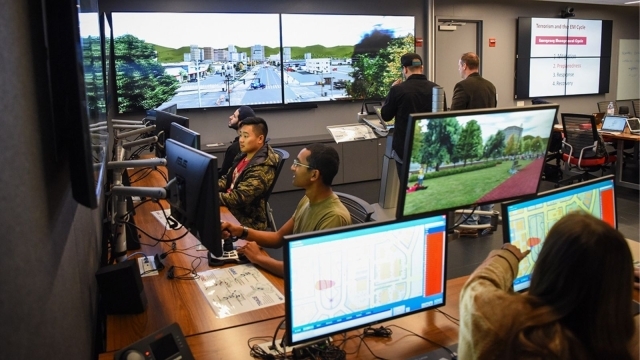

GR
Homeland Security, Doctor of Professional Studies
This innovative 78-credit program is designed to qualify candidates to fill mid- to high-level executive positions in government, law enforcement, the public and private security industries, nongovernmental organizations, and academia.
- Home
- Academics
- Majors and Programs of Study
- Homeland Security, Doctor of Professional Studies
New Approaches to Security Studies in an Ever-Changing World
Today’s security professionals face a myriad of threats and hazards unimaginable just two short decades ago. This dilemma is compounded by advancements in technology and an increasingly complex threat environment from a wide array of natural, man-made, and technological threats and hazards to people, property, the global economy, critical infrastructure, and computer systems, to name just a few. These threats have taken on a global nature with great interconnectivity, interdependency, and an increasing flow of goods, people, and services across borders.
Security professionals charged with analyzing risk and implementing well-considered policies face exceptional challenges in dealing with this complex security environment. In addition, decision-making must comply with their nation’s unique legal, political, and social framework. An understanding of the global dynamics undergirding these issues requires a multidisciplinary approach that explores this reality. This reality has created a demand for a new generation of highly educated leaders in both the private and public sectors of the Homeland Security Enterprise, as well as academics who will teach the next generation of security professionals and conduct innovative research in the field.
You can gain the knowledge, skills, and, credentials to meet these needs, and conduct research more effectively; think both analytically and critically; build and manage teams; and make decisions and apply knowledge to effectively solve real-world security challenges through the Doctor of Professional Studies program in Homeland Security (DPS) at St. John’s University---one of the first nonprofit educational institutions offering doctoral-level studies specifically in homeland security.
Offered by St. John’s Collins College of Professional Studies, this innovative 78-credit program is designed to qualify candidates to fill mid- to high-level executive positions in government, law enforcement, the public and private security industries, nongovernmental organizations, and academia. Students will research and explore the practice of such collaborative efforts; gain an understanding of the range of local, national, international and organizational security issues faced by public and private actors and entities within the Homeland Security Enterprise; apply this knowledge to issues of policy- and decision-making, organizational design, leadership, and administrative practices; and focus heavily on the practice of emergency and disaster preparedness, including response, recovery, mitigation, and resilience efforts. The program will focus not just on Homeland Security efforts in the United States but also draw on lessons learned from abroad.
To cater to the scheduling needs of both midcareer professionals and traditional students, the DPS program is offered in both a traditional classroom format and an online/limited-in-residency format. The limited-in-residency program is designed for working professionals seeking to pursue a doctoral degree in Homeland Security on a part-time basis. To accommodate participants' time constraints, the DPS will only require students to be in residency for one week for each academic year of the program.
The program also includes components unique to St. John’s, including the recently unveiled Homeland Security/Emergency Management Simulation Lab and Cyber Security Lab that offer state-of-the-art laboratory simulations and cyber security exercises, an extensive library collection accessible through the library’s website, a collection of books and other materials found at the main library on the Queens campus and smaller libraries located on other St. John’s campuses, and a wide range of technology and tools to facilitate online learning and support.
- Degree Type
- DPS
- Area of Interest
- Law, Policy & Government
- Associated Colleges or Schools
- Program Location
- Online
- Required Credit Hours
- 78
Contact Us
We are here to answer your questions about the Homeland Security program and admission process.
Please contact:
Justin Goldberg
Graduate Assistant Dean
[email protected]
Program Director
Dr. Bernard Jones

Courses
- HLS 102: Intelligence for Homeland Security: Organizational & Policy Challenges (3 credits)
- HLS 103: Critical Infrastructure: Vulnerability Analysis and Protection (3 credits)
- HLS 106 Ethical Leadership: Principles and Practices (3 credits)
- HLS 505 Homeland Security – Enterprise Risk Management
- HLS 601/601.1 : Homeland Security Enterprise (4 credits)
- HLS 602/602.1: Disaster Management I: Preparedness and Response (4 credits)
- HLS 603/603.1: Disaster Management II Operational Continuity and Recovery (4 credits)
- HLS 604/604.1: Theories and Concepts of Security (4 credits)
- HLS 500: Introduction to Research Methods (3 credits)
- HLS 701:Advanced Research Methods I (3 credits)
- HLS 702/702.1:Advanced Research Methods II (4 credits)
- HLS 703/703.1:Statistical Analysis in Research (4 credits)
- HLS 301 Police and Homeland Security Leadership
- HLS 203 Critical Issues in Correctional Administration
- HLS 232: Organizational Behavior
- HLS 280: Organization Development
- HLS 301 Police and Homeland Security Leadership
- HLS 302 U.S. Constitution and Homeland Protection
- HLS 303 Issues in Global Security
- HLS 304 Policy Formation and Analysis
- HLS 305 Seminar in Global Terrorism
- HLS 306 Migration and Border Security
- HLS 307 Leadership Issues in Critical Incident Management
- HLS 308: Selective Topics in Homeland Security and Criminal Justice I
- HLS 309 Selective Topics in Homeland Security and Criminal Justice II
- HLS 310 Public Admin/Crim Just Agency
- HLS 311 Criminological Theory
- HLS 312 Court Administration and Leadership
The DPS requires the completion of six-credit hours of internship experience directly related to the field of Homeland Security under faculty supervision. Students who have significant relevant work experience within the industry will not be required to complete an internship. The waiver of this requirement must be supported with an experiential learning portfolio submitted by the student and is at the discretion of the program director or his or her designee.
- HLS 201 Internship in Homeland Security I
- HLS 202 Internship in Homeland Security II
Upon successful completion of the required core courses and prior to starting their doctoral dissertation, students are required to pass a comprehensive examination by demonstrating a mastery of the learning objectives of all core courses.
- HLS 801: Dissertation Research I
- HLS 802: Dissertation Research II
- HLS 803: Dissertation Research III
- HLS 804: Dissertation Research IV
Dissertation: The degree of Doctor of Professional Studies shall be conferred upon completion and successful defense of the dissertation before the candidate’s dissertation committee.
The candidate’s dissertation must make a significant contribution to the practice of the profession. It requires both a theoretical construct and an applied research approach reflecting a higher level of thinking. The dissertation also must have some practical application (e.g. a dissertation could evaluate a security agency or propose the development of a new security program).
The degree of Doctor of Professional Studies shall be conferred upon completion and successful defense of the dissertation before the candidate’s dissertation committee.
The candidate’s dissertation must make a significant contribution to the practice of the profession. It requires both a theoretical construct and an applied research approach reflecting a higher level of thinking. The dissertation also must have some practical application (e.g. a dissertation could evaluate a security agency or propose the development of a new security program).
Students must maintain a minimum G.P.A. of 3.0 throughout the program.
Program Delivery
The program will be delivered as both an on-campus degree program and in a limited-in-residency format.
The on-campus program is designed for those students seeking to pursue a doctoral degree in Homeland Security on a full-time basis. Courses will be delivered in the following instructional modes: in a traditional or conventional classroom setting, fully online, and in a hybrid format.
The limited-in-residency program is designed for working professionals seeking to pursue a doctoral degree in Homeland Security on a part-time basis. To accommodate participants' time constraints, the DPS will only require students to be in residence for one week for each academic year of the program.
The residency requirement will lay the foundation for more advanced scholarship and will provide an opportunity for doctoral students to interact with and network with their faculty mentors. Following the residency periods, the remainder of the coursework will be completed online using asynchronous learning. Students will be required to read assigned materials, participate in online discussions with faculty and other students, and prepare papers and projects.
The online learning programs portion allows you to take courses electronically. Log in at your convenience to enter our virtual classrooms, learn from our accomplished faculty, and engage with classmates.
Our online courses offer the same high academic quality that students experience on campus. Professors deliver lectures and post assignments via Canvas, our electronic course management system. Students use it to attend virtual classes, share documents, take exams, and exchange ideas with faculty and classmates.
This flexible delivery allows both traditional students and working professionals throughout the United States and abroad to take advantage of this unique and innovative program.
Unique Benefits

Customized Experience
Enroll in a program with a unique schedule and structure to accommodate working professionals.
Three Class Formats
Take courses in three delivery modes: conventional classroom, online, and hybrid classes.

Build More Connections
Network with alumni for career development and job opportunities.
Admission
All applicants must possess a bachelor’s degree from an accredited institution or the international equivalent before enrollment at the graduate level. In addition to the application form and non-refundable application fee, candidates should submit the following:
- Evidence of a master's degree from an accredited college or university with a cumulative GPA of at least 3.0/4.0.
- Statement of professional goals and resume, which can be uploaded as part of the application for admission.
- Three letters of reference obtained from professional or academic references, at least one of which attests to the applicant’s research ability.
- Scores for the Graduate Record Examinations (GRE) General Test. (Applicants with at least 30 credits of graduate work and cumulative GPA of 3.5 or greater are exempt from the GRE but submission of scores are strongly recommended.)
- Official transcripts from all undergraduate, graduate, and professional schools attended.
- Official TOEFL, IELTS, PTE or Duolingo scores are required for applicants whose native language is not English.
- Students with international credits must submit a course-by-course foreign credit evaluation with GPA calculation from a NACES member.
For additional information, please contact:
Office of Graduate Admission
[email protected]
718-990-1601
Application Deadline
March 15th for cohort starting in August
Scholarships and Grants
A limited number of Graduate Assistantships from the University are available for highly qualified candidates pursuing graduate study.
Please note that California residents in online programs at out of state nonprofit institutions, like St. John’s University are ineligible for all forms of federal aid, including federal student loans based on current federal state authorization rules.
Career Outcomes
The DPS is designed to prepare candidates to fill mid- to high-level executive positions in government, law enforcement, the public and private security industries, nongovernmental organizations, and academia. If your goal is to work in these professions, this program will provide the skills and academic background necessary for you to take advantage of the many career opportunities available.
Potential Employers
- Federal law enforcement agencies
- The intelligence community
- Department of Defense
- US Department of Homeland Security
- State and local law enforcement agencies
- Emergency management agencies
- Regulatory and safety agencies
- Colleges and universities
- Policy think-tanks
- Research institutions
- Corporate security departments
- Business continuity departments
- Non-government organizations
- International organizations
St. John’s offers support and guidance to students interested in securing internships and job placement upon graduation. Internships and job placements are not guaranteed and some are secured directly by the student without direct guidance from the University. Some positions may have been held prior to enrollment at the University.
Student Stories
St. John’s Fuels Alumna’s Passion for Homeland Security
Julia has found it to be a valuable learning experience to work alongside her peers who are very seasoned professionals.
Highlight
Julia has found it to be a valuable learning experience to work alongside her peers who are very seasoned professionals. “I have been able to listen to their advice and learn from their service, since I lacked their practical and tactical experience,” she said. “But they have also leaned on me for advice, as they have returned to school for the first time in years after a long career. By leveraging our strengths and weaknesses with each other, we have grown extremely close.”
What Sets Us Apart
- Participate in classes taught by outstanding faculty, all of whom have been practitioners and leaders in their respective fields.
- Attend classes with other professionals with similar interests and goals.
- Join a diverse student body.
- Attend full-or part-time.
- Receive one-on-one academic advisement.
- Participate in internships.
- Obtain assistance in career planning by visiting University Career Services.
Featured Faculty
All faculty members teaching in the DPS program hold a Ph.D. or other terminal degree and are well-established scholars in their fields of expertise. They also possess extensive professional experience within both the public and private sectors of the Homeland Security Enterprise. The faculty regularly conduct research, publish, and travel to give conference papers and invited lectures.
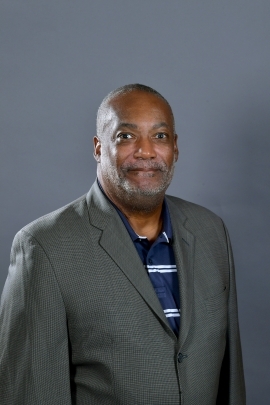
- Associate Professor
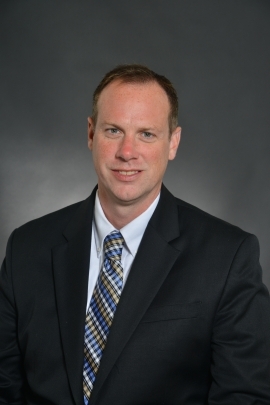
- Professor
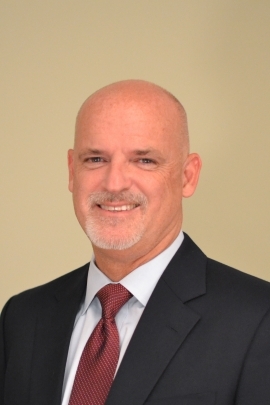
- Associate Professor
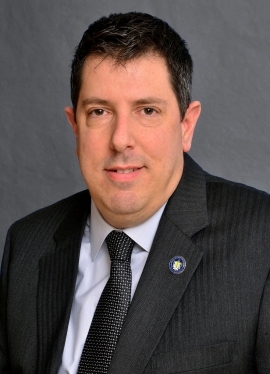
- Associate Professor
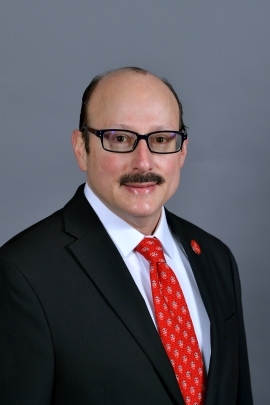
- Professor, Interim Associate Dean of External Affairs and Graduate Studies
Department
Criminal Justice and Homeland Security
- Associate Professor

- Adjunct Assistant Professor
Featured News
St. John’s Homeland Security Graduates Discuss Emerging Industry Issues with Students
St. John’s University students and graduates are using the latest technologies to meet the nation’s homeland security challenges.
Interested in Law, Policy & Government, but not sure if Homeland Security, Doctor of Professional Studies is right for you?
UG
Accelerate your path to law by pursuing a combined B.A./J.D. program.
- Queens Campus
Dual
The dual Bachelor of Science and Juris Doctor program permits you to enter the St. John’s University School of Law before completing your bachelor’s degree and to complete your academic training in six years, earning an undergraduate degree from the College of Professional Studies and a Juris Doctor degree from St. John’s Law.
- Queens Campus
UG
The Business Law minor encompasses all the laws that dictate how to form and run a business. The minor deals with the collection of legal requirements around forming, operating, dissolving, and engaging with a business. The Business Law minor also includes state and federal laws, as well as administrative regulations.
- Queens Campus
UG
The combined Bachelor of Science (B.S.) and Master of Arts (M.A.) program in Criminal Justice and Sociology will allow you to develop these valuable skills and complete both degrees in just five years of full-time study.
- Queens Campus
UG
The Associate Degree in Criminal Justice is uniquely designed as the first step towards earning the Bachelors Degree in Criminal Justice. It satisfies the education requirements of the New York Police Department and many other police departments.
- Queens Campus
UG
Prepare for a dynamic career in the criminal justice system with the Bachelor of Science in Criminal Justice at St. John’s University, featuring specialized courses, and practical internships at leading New York City agencies, equipping graduates for success in both the public and private sectors.
- Queens Campus
GR
The M.A. in Criminology and Justice at St. John's offers a rigorous academic foundation in criminology and the skills to analyze crime-related data and research.
- Queens Campus
GR
This program is designed to educate students on current leadership skills and trends in Homeland Security and Law Enforcement.
- Queens Campus
- Online
UG
The Homeland Security Program at St. John’s University focuses on the protection of the nation’s critical infrastructure and populace from terrorism, criminal acts, and natural disasters.
- Queens Campus
UG
The Homeland Security Program focuses on protecting the nation’s critical infrastructure and populace from terrorism, criminal acts, and natural disasters. Graduates will be equipped to address complex security challenges and contribute to the safety and resilience of their community and nation.
- Queens Campus
Law
A nationally respected faculty, congenial, diverse and talented students and a powerful network of successful alumni.
- Queens Campus
UG
The minor in business law provides an introduction to the knowledge, skills, and competencies needed to deal with the legalities of running a business and to recognize the body of law that governs business and commerce.
- Queens Campus
UG
The B.S./M.A. program in Legal Studies and Sociology allows qualified students to simultaneously work toward the completion of a B.S. degree in Legal Studies and an M.A. degree in Sociology.
- Queens Campus
UG
The legal studies minor is appropriate for students who aspire to go to law school and is appropriate for students who aspire to work in the legal profession as paralegals. Students who complete the legal studies minor are given a paralegal certificate.
- Queens Campus
UG
Legal studies teaches foundational skills in the practice of law.
- Queens Campus
Dual
The AS/LLB allows students to complete two legal degrees in four years, one in New York and one in London.
- Queens Campus
- Study Abroad
UG
Legal studies teaches foundational skills in the practice of law.
- Queens Campus
UG
Develops leadership, critical thinking, and decision-making skills, preparing students for service as officers or leaders in military and civilian careers.
- Queens Campus
Law
Located in Queens, New York, one of the most diverse places in the world and one of the five boroughs of New York City, the global epicenter of real estate development, investment, and finance, St. John’s provides the perfect launching pad for a career in real estate law.
- Queens Campus
Law
Why earn a Transnational Legal Practice LL.M. at St. John's Law? The Transnational Legal Practice LL.M. degree is a great choice for internationally-trained lawyers and law students who plan to work in cross-border/transnational contexts, whether in the U.S or another country.
- Queens Campus
Law
The LL.M. in U.S. Legal Studies is designed for one purpose: to prepare internationally-trained attorneys to pass the New York Bar Exam and gain admission to practice law in this unrivaled jurisdiction.
- Queens Campus
Take the Next Step

Explore Affordability
The Office of Student Financial Services is committed to providing students and their families with the information they need to navigate and understand the financial aid and payment process.
Apply to St. John's
St. John’s offers a free online application for all 100+ undergraduate programs, and graduate applications carry a low cost for most programs.

